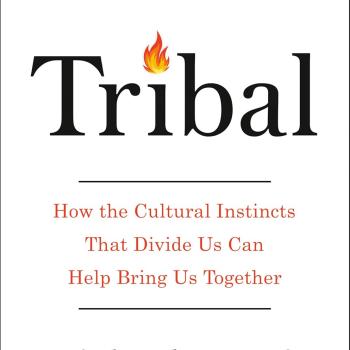People often overlook a key feature of honor-same societies. Honor-shame cultures are inherently collectivistic in orientation.
Have you ever thought about how people lead others in a collectivistic context?
Over at Inside Story, you’ll find an excerpt from a recent book by Kerry Brown called The New Emperors: Power and the Princelings in China.
What I found interesting is how he describes the way one must demonstrate leadership within a collectivist society like China. The final lines of the excerpt capture the key idea very well. He states. . .“If modern China does have a strongman, it is the Communist Party itself. An individual trying to muscle in on this would be high-risk, and face huge opposition. Look what happened to Bo Xilai when he was accused of serving his own ambitions rather than those of the party.
The important thing to understand about Xi is that he is at the heart of a leadership that has a collective purpose that arises from the demands of party unity. It is hard to see how else Xi and his team would be able to prosecute the anti-corruption purge that has been going on since early 2013, extending into the heart of some of the key institutions of power in China, from the military to government to the party itself. In this context, the party looks increasingly like the Catholic Church – an organisation that tries to be less a vehicle of specific interests and objectives and more a cultural/social/ideological entity – an entity that demands belief of some sort from its adherents and pursues a broad spiritual vision (in this case, a vision of a “rich, strong, powerful country”).
We shouldn’t underestimate the powers that Xi is exercising, but if we overestimate them then we are also making a mistake. Xi is no Godfather; he is the faithful servant of the party. As long as he continues to be so, his position will be secure. But if ever he tried to assert his own networks and interests over those of the party then there would be no nice protocol about how he would be dealt with. His felling would be as brutal as that meted out to Bo Xilai. This is the great secret of modern China. Individual political leaders are not the key. The institution of the party is. And the people who serve this better are the ones, in the end, who succeed.”
What do you think? Politics aside, what implications might collectivism have for leadership, especially in the church?
Can the church learn something from the Party?
I know some will cringe at the question, but let’s be humble for a second and just do some self-reflection.
Might our conceptions of church leadership be a bit to individualistic? How many churches are led by a lone, strong armed individual? While this model is popular in the West, it is biblical? Does this way of leading even make sense in a collectivist church?
Here are a few of my questions––
- How might we need to adjust the way we teach pastoral leadership?
- How might mission leaders adjust the way they lead, especially in non-Western contexts?
- Do those we lead feel they are a part of a Body, the Church? Or, do they feel like they are merely following the preferences and prerogative of a local leader/pastor?
For those interested, I’ve touched on the subject a bit in an article I wrote for Global Missiology called “Authority in a Collectivist Church.”

















